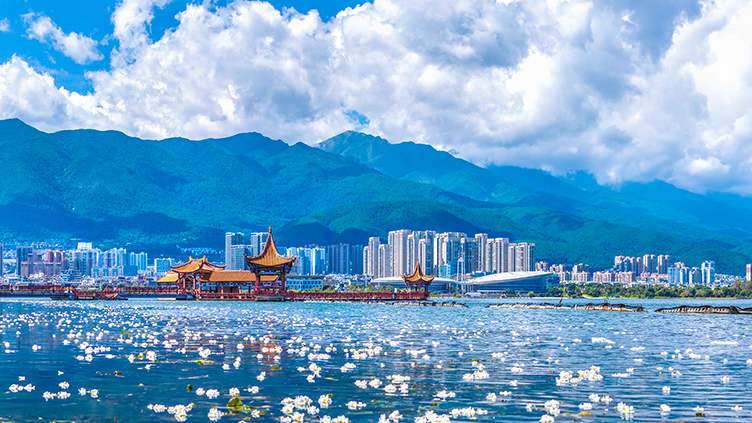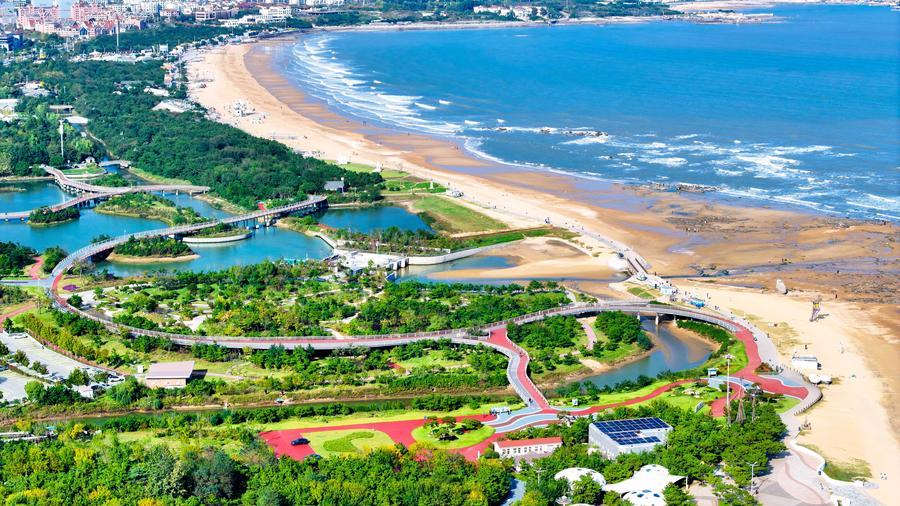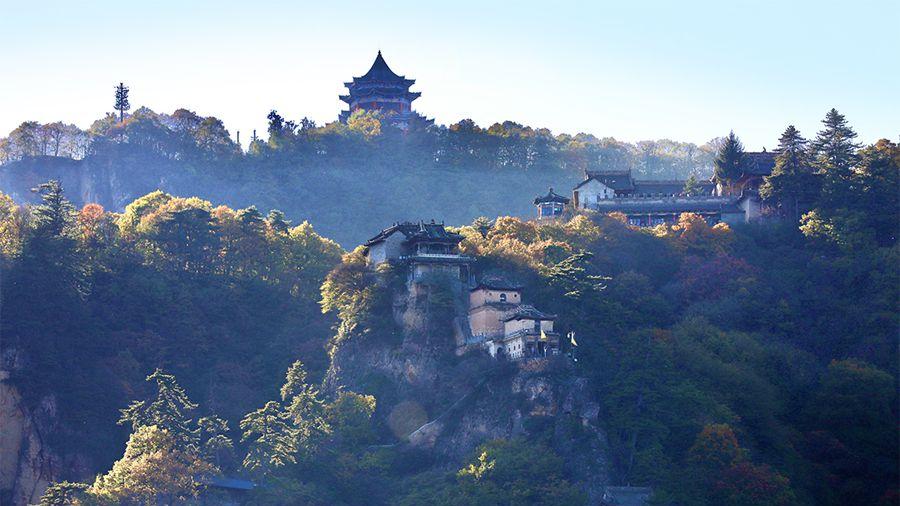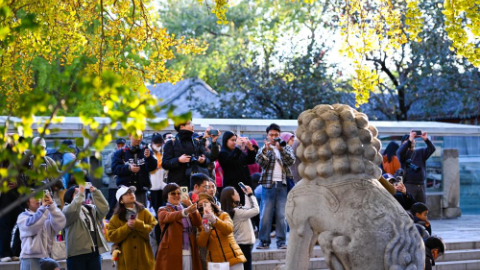US-Japan first summit following Takaichi's inauguration seeks to show 'close alliance' but structural contradictions persist: experts
US President Donald Trump met with Japan's new Prime Minister Sanae Takaichi at the Akasaka Palace State Guest House in Tokyo on Tuesday, during which he underscored close relations with the new Japanese leader, as he announced fresh investment between the two nations on the latest stop of a roundtrip to Asia, CNN reported.
The two leaders exchanged lavish words of praise in an address to US troops at the Yokosuka Naval Base, south of Tokyo. On Tuesday, the two leaders also signed an agreement to bolster the supply of "raw and processed critical minerals and rare earths," per the CNN.
Video footage circulated online showed that Trump stands at a podium with his right arm around Takaichi's shoulder while claiming that "our bond has grown over 8 decades into the beautiful friendship that we have. It's a foundation of peace and security in the Pacific."
Chinese experts said although the two leaders made conspicuous efforts to demonstrate close alliance between the two countries, many outcomes or discussions were reiterations of existing topics, and did not go beyond what was expected.
While the US-Japan alliance appears stable on the surface, underlying structural contradictions, such as tariffs, trade frictions and differences in security policies persist, experts said, while noting that both sides have cautiously avoided these issues.
Strengthen alliance
During the meeting which lasted for 40 minutes, the two leaders confirmed their intention to deepen cooperation in the fields of economy and security to strengthen their alliance, Japan's Nikkei Shimbun reported.
Takaichi hailed the US-Japan alliance as the "greatest alliance in the world." Declaring that her goal is to "restore strong Japanese diplomacy" to protect Japan's national interests, she committed to working with Trump to forge a "new golden age" in the alliance, according to Nikkei Shimbun.
The two leaders signed the implementation of an agreement for their nations' alliance, a short affirmation of a framework under which the US will tax goods imported from Japan at 15 percent while Japan creates a $550 billion fund of investments in the US, according to the AP.
"The atmosphere of the summit appeared friendly and close. However, the consensus reached didn't surpass prior expectations," Xiang Haoyu, a distinguished research fellow at the Department for Asia-Pacific Studies of the China Institute of International Studies, told the Global Times on Tuesday.
Many outcomes or discussion topics were reiterations of existing issues, and to a large extent demonstrated a shared willingness to maintain alliance stability and strengthen cooperation, which is an act of "showing closeness," Xiang said.
In Japan, exports to the US have posted six straight months of declines by September. Still, the Japanese economy managed to defy economists' expectations in the second quarter, recording a 1.2 percent annualized increase in gross domestic product. The question is whether that can continue, read an analysis by the CNN on Tuesday.
Japanese companies have been lowering prices to maintain customers in the US, according to a research note published this month by Goldman Sachs economists. That's taken a bite out of their earnings and large manufacturers see that worsening, according to an October survey published by the Bank of Japan.
Later, at a dinner at the US embassy in Tokyo packed with CEOs including Apple's Tim Cook, Trump reveled in the deals. Trump and Takaichi also signed an agreement to cooperate on critical minerals and rare earths, AP reported.
The US and Japan plan to accomplish rare earths goals through use of economic policy tools and coordinated investment to accelerate development of diversified, liquid and fair markets for critical minerals and rare earths, the White House statement said.
US-Japan cooperation on rare earths supply chains aims to help the US gradually reduce its dependence on China, but no direct mention of China was made publicly by the leaders, Da Zhigang, director of the Institute of Northeast Asian Studies at the Heilongjiang Provincial Academy of Social Sciences, told the Global Times on Tuesday.
However, restructuring supply chains for rare earths and other critical minerals is not realistic for both the countries in the short term, Xiang commented.
Seeking autonomy?
Defense was one of the top agendas during Trump's Japan visit. According to Nikkei Shimbun on Tuesday, during their meeting, the Japanese prime minister explained plans to expand investment and financing in the US and to increase defense spending.
Trump capped off their meeting with a speech aboard a US aircraft carrier later on Tuesday. Takaichi accompanied him to the Yokosuka naval base, south of Tokyo, Japan's NHK reported.
Speaking beside Trump aboard the USS George Washington aircraft carrier in Yokosuka, Takaichi warned that the two allies faced an "unprecedented severe security environment," Financial Times reported.
Stressing that "peace cannot be preserved by words alone," Takaichi, said Japan was "ready to contribute even more proactively to peace and stability in the region," according to the report.
Takaichi is looking to have Japan reach a target of spending 2 percent of GDP on defense by the end of this fiscal year, effectively moving the planned hike ahead by two years, media reported.
According to experts, Takaichi's security policy aims to strengthen Japan's autonomous defense capabilities and assume a more proactive role within the Japan-US alliance, thereby enhancing its strategic value to the US.
However, Xiang pointed out that Takaichi's policy faces challenges: while Tokyo emphasizes autonomous defense and equal status within the alliance, Washington, though wanting Japan to share more burdens, will not allow Japan's full strategic autonomy.
In response to a media inquiry regarding the US-Japan leaders' meeting with the two confirming strengthening US-Japan alliance, Chinese Foreign Ministry spokesperson Guo Jiakun stated on Tuesday that the Asia-Pacific is a stellar example of peace and development. The growth of bilateral relations and security cooperation between the US and Japan need to be conducive to regional peace and stability, rather than the other way around, Guo said.
Guo stated that given Japan's history of militarist aggression during the last century, Japan's military and security moves have been closely watched by its Asian neighbors and the international community. This year marks the 80th Anniversary of the victory of the Chinese People's War of Resistance Against Japanese Aggression and the World Anti-Fascist War.
We urge Japan to respect its neighboring countries' security concerns, deeply reflect on its history of aggression, stick to the path of peaceful development, and earn the trust of its Asian neighbors and the wider international community through concrete actions, Guo said.
Photos
Related Stories
- Stuck
- US outrage toward an anti-tariff advertisement exposes Canada's dilemma
- U.S.' military operations in the Caribbean reveal interference in Venezuela's internal affairs
- 2 killed, several critically wounded in U.S. North Carolina shooting
- Trump terminates all Canada trade talks
- U.S. administration to reopen Alaska wildlife refuge for oil, gas leasing
Copyright © 2025 People's Daily Online. All Rights Reserved.









